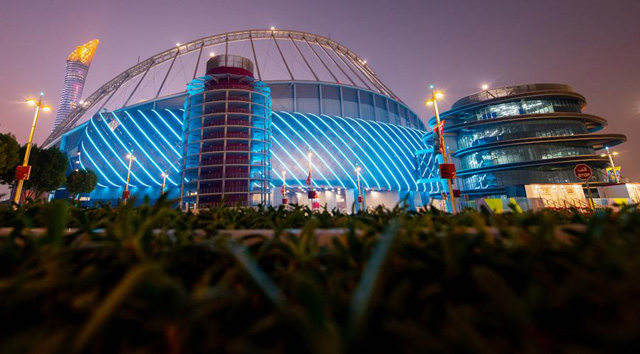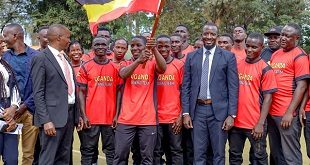
Doha, Qatar | AFP | Qatar is preparing to welcome thousands of fans and competitors for the World Athletics Championships starting Friday, an event seen as a staging post towards the 2022 football World Cup.
The 10-day event in the capital Doha will be a key test ahead of the football extravaganza in the gas-rich Gulf monarchy, although the track and field showcase will play out on a far smaller scale.
World Cup organisers and football fans will be anxious to see if Qatar can overcome problems encountered at a recent World Cup qualifying fixture, stubborn Doha traffic and unfinished public transport to deliver a smooth championships.
An ongoing diplomatic spat between Qatar and several neighbours could threaten to overshadow the competition, as well as possibly dent the numbers of spectators and competitors.
This is how Qatar has prepared for the tournament in key areas:
– Security –
Qatari pro-government media has heavily publicised recent training exercises staged by the US FBI in Doha to equip Qatari officers with “crisis and disaster management” skills.
The city was ranked the world’s second safest by CEOWORLD magazine last month behind Abu Dhabi, capital of regional rival the United Arab Emirates.
However the Worlds hosts will be looking to avoid a repeat of chaotic scenes that played out during a World Cup qualifying fixture between Qatar and India earlier this month.
Indian fans with tickets were unable to access the venue and a surge of fans attempted to storm the ground during half-time as security staff struggled to bring the situation under control.
– Venues –
Ahead of the opening ceremony, hundreds of volunteers were marshalled around Doha’s Khalifa stadium by police while technicians hoisted vast lighting rigs into place in the venue’s intricate lattice-work roof.
Chief organiser Dahlan al-Hamad said at a recent sports integrity event in Doha that “Qatar is 100 percent ready for the championship — we are very excited”.
The stadium, which will host most events, was first opened in 1976 but totally overhauled ahead of a relaunch in 2017 and has since successfully hosted Diamond League events.
The city’s Corniche waterfront will be used for the marathon, being staged for the first time at midnight when the temperature will be lower. The route will also host the men’s and women’s 20 kilometre race walks and the mixed 50 kilometre race walk.
Construction teams worked around the clock to finish assembling the elaborate scaffold towers that line the route’s central reservation and will support floodlights for the midnight marathon.
– Transport –
Qatar has invested heavily in transport infrastructure since being named 2022 World Cup hosts in 2010. It now boasts one of the world’s largest hub airports and Qatar Airways is currently rated the best by an industry body.
But it is unclear if the multi-billion-dollar metro system’s yellow line will be ready in time to shuttle spectators to the two new stations near the Khalifa stadium, al-Aziziyah and Sports City, both of which are shaped like Bedouin tents.
In the absence of a rail option, fans will access the stadium by road.
The area is already popular with motorists and home to a mall, raising the prospect of traffic jams ahead of popular events.
Officials were pushing to overhaul several key bottlenecks and junctions across the city ahead of the high-point of the athletics calendar.
– Fans –
While the Khalifa stadium can hold 46,000 people, it will be configured for fewer fans during the World Championships with organisers hoping to attract around 14,000 spectators to the highest profile events.
Tickets are “selling well” according to an official, and members of Qatar’s expatriate work force — Kenyans and Americans in particular — are expected to turn out.
It remains to be seen though how many fans from neighbouring Bahrain, Saudi Arabia and the United Arab Emirates will make it to Doha for the event.
The three countries, along with Egypt, have enforced a boycott of Qatar since June 2017 and their citizens are technically banned from travelling to the peninsula state.
The Riyadh-led coalition accuses Qatar of backing extremist groups and Iran, charges it denies — raising the spectre that politics could partially overshadow the athletics.
Nonetheless Saudi will send three athletes, Egypt five, the UAE one, and Bahrain 21 competitors in total.
 The Independent Uganda: You get the Truth we Pay the Price
The Independent Uganda: You get the Truth we Pay the Price




